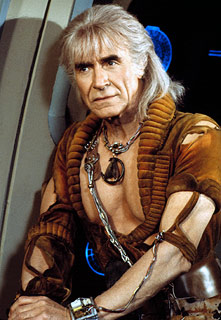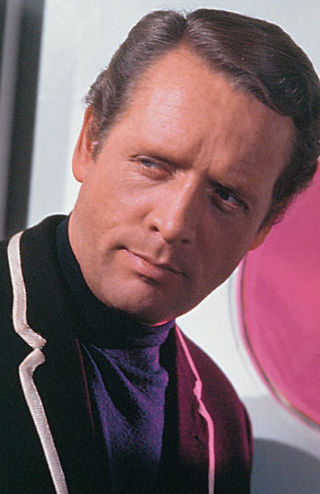 In Entertainment Weekly:
In Entertainment Weekly:
The
late Ricardo Montalban had a titanic career — spanning some 60-odd years — during which the Mexican actor kicked up his heels in MGM musicals and granted wishes on
Fantasy Island, set the stage for ape rebellions and tangled with men from U.N.C.L.E, swung with nighttime soap stars and lent his voice to
Family Guy. It doesn't matter than he won an Emmy (for 1978's
How the West Was Won) or was nominated for a Tony (for 1958's
Jamaica)…to me, he will always be Khan.
He will always be Captain Kirk's finest foe, the would-be conqueror who first tried to steal the Enterprise in the classic Star Trek episode “Space Seed” and then finally robbed Kirk of his best friend in Star Trek II: The Wrath of Khan. Montalban's magnetic, robust presence; that voice that sounded like a ride over rolling hills — he made Khan Noonien Singh the worst kind of despot: the kind you're pretty sure you'd die for. The product of a Eugenics program that rendered him stronger and smarter than the average bear, Khan was a tragic figure — the man who would not be denied, born into a world that did nothing buy deny him his birthright — and that tragedy is part of what lifts Star Trek II to an almost Shakespearean level.
 And in the Guardian, a piece on the late Patrick McGoohan:
And in the Guardian, a piece on the late Patrick McGoohan:
An angry secret agent drives into London in his fashionable Lotus 7 as a storm threatens, bursts into his boss's office, throws his resignation down on to his desk, and storms out again. At home later, he finds an undertaker at his door. Gas comes through the keyhole, and he collapses as he packs his bags to go away. He wakes up in the Village, and no one will tell him where he is or why he is there, only that he is Number Six. ” I am not a number, I am a free man!” is his answer – and battle was joined in 17 attempted escapes.
In the series McGoohan met several sinister Number Twos but could never find out who Number One was until the last episode, improvised by McGoohan and his large writing team at the last moment, when Number One's false face was pulled off to reveal a monkey's underneath. When that too was pulled off, it revealed the face of McGoohan's Number Six himself.
The implication that human beings can imprison themselves was timely in the swinging 60s, while at the same time the notion of the security services as the real enemy was seeping its way into fiction that had previously existed in more black and white terms.
And in the Guardian, a piece on the late Patrick McGoohan:
